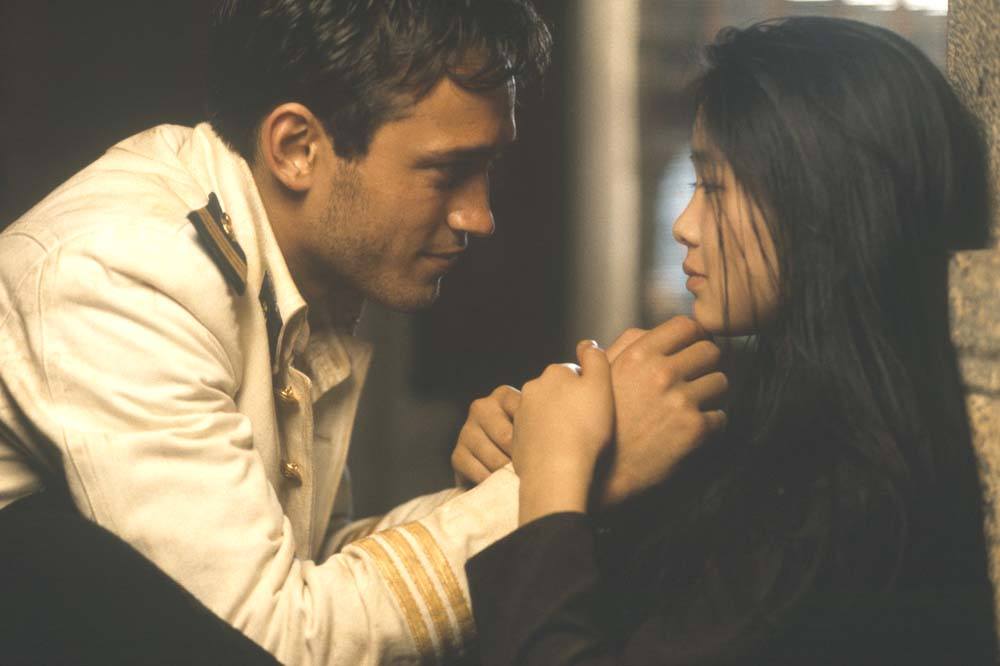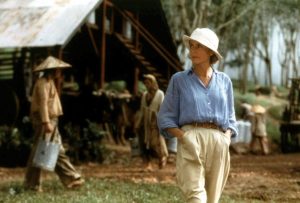Indochine (1992)
- fanmovies
- November 6, 2024

Indochine (1992) is an iconic French historical drama that offers a deep, emotional look into the period of French colonial rule in Vietnam during the 1930s and 1940s. Directed by Régis Wargnier, the film intricately weaves a complex romantic story within a politically charged backdrop. With powerful performances from Catherine Deneuve as Éliane Devries and Linh Dan Pham as Camille, the film delves into themes of love, loyalty, and the critique of colonialism.
Plot Overview
The story centers on Éliane, a wealthy and influential French woman who owns a rubber plantation in French Indochina. She adopts Camille, a Vietnamese girl from an aristocratic lineage. Complications arise when Jean-Baptiste, a young French naval officer played by Vincent Perez, enters the scene. Both Éliane and Camille fall in love with him, creating a love triangle intertwined with conflict. Camille ultimately chooses to follow her heart and nationalist convictions, abandoning her family to join the movement for Vietnamese independence.
Detailed Review
- Acting:
- Catherine Deneuve delivers a stunning performance as Éliane, embodying a woman who is both powerful and vulnerable. Deneuve captures Éliane’s complexity, portraying a character who holds significant power yet grapples with inner emotional turmoil.
- Linh Dan Pham’s portrayal of Camille brings a fresh, emotional layer to the story, especially as her character transitions from a gentle young woman to a determined revolutionary. Her performance captures the resilience of the Vietnamese spirit, adding depth to the film’s central themes.
- Storyline:
- The film crafts a layered, multifaceted plot that blends love, loyalty, and national conflict. The romance between Éliane, Camille, and Jean-Baptiste serves as more than a love story—it mirrors the cultural clash between France and Vietnam and the tension between the ruling class and the native population.
- Camille represents the young Vietnamese generation, eager for freedom and justice, while Éliane symbolizes the colonial power, creating both personal and symbolic conflict. The story not only explores the emotional journey of the characters but also reflects Vietnam’s struggle for independence.

- Setting and Cinematography:
- Indochine was filmed in Vietnam, showcasing breathtaking scenes of lush rubber plantations, serene villages, and the country’s wild, untouched landscapes. This setting brings a poetic, immersive quality to the film, capturing Vietnam’s beauty while highlighting the harshness of life under colonial rule.
- Filmed in locations such as Ha Long Bay, the Perfume River, and the Mekong Delta, the film combines stunning visuals with a sense of authenticity, adding to its emotional depth and historical atmosphere.
- Themes and Significance:
- The film transcends being a mere love story by delivering a profound critique of colonialism and the oppression faced by the native population. It portrays the hardship of Vietnamese life under French rule, addressing racial tensions and the simmering anger of young people like Camille who yearn for freedom and equality.
- Indochine also captures Éliane’s inner conflict; although she loves the land and people of Vietnam, she begins to see herself as part of an oppressive system.

- Awards and Impact:
- The film won the Academy Award for Best Foreign Language Film in 1993, and Catherine Deneuve received an Oscar nomination for Best Actress. This recognition brought French cinema and Vietnam’s rich cultural landscape to a global audience.
- Indochine is beloved for blending historical and romantic elements, leading audiences on an emotional journey while reflecting on the painful history of colonialism.
Overall Evaluation
With its seamless fusion of exceptional performances, stunning visuals, and a meaningful plot, Indochine is a must-watch not only for romance enthusiasts but also for those interested in Vietnam’s history and colonial legacy. The film brilliantly conveys a love story set against a tumultuous historical period, delivering a humanistic message about freedom and resilience.











